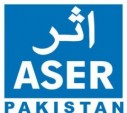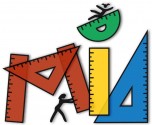
ASER Centre
Evidence for action- Home
- About Us
- ASER Survey
- Research & Assessment
- Capacity Building
- Publications & Reports
- ASER Reports
- ASER Data Over Time
- ASER 2022: Chhattisgarh
- ASER 2022 'Young Children'
- ASER 2022
- ASER 2021: West Bengal
- ASER 2021: Chhattisgarh
- ASER 2021
- ASER 2020 Wave 1
- ASER 2020 Digital Recheck
- ASER 2020: Karnataka
- ASER 2019
- ASER 2018 'Young Children'
- ASER 2018
- ASER 2017
- ASER 2016
- ASER 2015: Maharashtra
- ASER 2015 : Punjab
- ASER 2014
- ASER 2013
- ASER 2012
- ASER 2011
- ASER 2010
- ASER 2009
- ASER 2008
- ASER 2007
- ASER 2006
- ASER 2005
- Odisha Tribal Study 2022
- ASER Health Report
- Study on Access, Transition and Learning in Secondary Education
- India Early Childhood Education Impact Study
- Urban Ward Surveys
- Bihar Elementary School Study
- Inside Primary Schools
- PAHELI
- External Publications
- ASER Reports
- Data Query
- Impact
CITIZEN-LED, HOUSEHOLD BASED ASSESSMENTS AROUND THE WORLD
Together, these initiatives reached more than a million children in 2013
The ASER model, that incorporates citizen-led, household-based assessment initiatives have been implemented in several Asian and African countries. Using basic reading and arithmetic tasks, these countries have begun to assess for themselves what their children are able to do.
This initiative, which was first launched in India in 2005, where it is known as ASER (The Annual Survey of Education Report), has grown organically and spread across other countries over the period of a decade, leading to the formation of the PAL Network.
The People’s Action for Learning Network (PAL Network) is a community of fourteen countries working across three continents to assess the basic reading and numeracy competencies of all children, in their homes, through annual citizen-led assessments. This document provides an overview of the learning levels of children enrolled in grade 5 in the member countries.
The fourteen countries within the PAL Network collectively test more than one million children every year in basic reading and numeracy competencies.The PAL Network Secretariat, with its headquarters in Nairobi, Kenya was established in February 2015.
In India and Pakistan, the exercise is called ASER (which means "impact"), in East Africa it is called Uwezo (which means "capability"). The Mali effort is named "Beekungo" (meaning "we are in it together") and in Senegal it is called Jangandoo (meaning "learn together"). In 2013 alone, these citizen based large-scale assessments covered over one million children in South Asia and Sub-Saharan Africa.
This document on 'Citizen-led basic learning assessments for children' provides a brief overview and side-by-side comparison of the scale, scope, and key findings of these initiatives. For more information on these assessments watch the video and click on the links below for information on the assessments in particular countries. If you are interested in learning about how to conduct an assessment in your country, write to us at contact@asercentre.org.
EVERY CHILD COUNTS (AND READS)...watch a 12-minute video on citizen-led, household-based assessments

Watch : Every Child Counts (and Reads)_Full Version_English ( ~ 12 m)
Watch the version with French subtitles here.
ASER INDIA
ASER has been active in India since 2005. Since 2008, ASER Centre has also engaged actively with the groups below who are carrying out similar assessments in their own countries. More information about ASER Centre and the ASER survey is available on the links elsewhere on this website.

ASER PAKISTAN
ASER Pakistan has been carried out since 2009 in collaboration with the South Asian Forum for Education Development (SAFED). This initiative replicates the ASER tool development, survey and sample design process and covers all rural districts of Pakistan. Go to the ASER-Pakistan website

Uwezo in KENYA, TANZANIA AND UGANDA
In East Africa, this effort is called "UWEZO" which means 'capability'. Following the ASER model, countries like Kenya, Tanzania and Uganda have conducted education surveys on the learning levels of children in their respective countries. Visit the Uwezo website

Beekungo in MALI
In Mali , this initiative is known as Beekungo which means ' we are in it together '. 2012 was the first year for this survey in Mali Read more on Beekungo in Mali (in French).

Jangandoo in SENEGAL
In Senegal, this initiative is known as Jangandoo, which means 'learn together'. In 2012, about 1,605 children from four regions in the country were tested as part of the pilot. Children were tested in French, Wolof and Pulaar. Watch a video about Jangandoo here (in French).

Medicion Independiente de Aprendizajes in MEXICO
Mexico became the first Latin American country to adopt the citizen-based, household-led assessment model. The Medicion Independiente de Aprendizajes, or MIA, will roll out in the state of Veracruz in late 2014. Visit the MIA website (in Spanish).
CLA WORKSHOP & PAL NETWORK LEADERS’ MEET: JUNE 4-10, 2016
It is not every day that people from 17 countries come together to learn, share and think about how to broaden the scope and reach of citizen-led efforts like the ASER survey. Since its inception, ASER has inspired parallel efforts in 12 countries.To date, the citizen-led assessment, CLA, model has been adapted for use in Bangladesh, Cameroon, Ghana, Kenya, Mali, Mexico, Mozambique, Nigeria, Pakistan, Senegal, Tanzania and Uganda. These countries form the People’s Action for Learning (PAL) network, committed to implementing and promoting household-based assessments of basic learning outcomes for children.
PLANS ARE AFOOT AT AURANGABAD
Pratham’s PACE Hotel in Aurangabad, Maharashtra has been abuzz with activity, conversation and excitement with the arrival of representatives from 17 countries for two landmark conferences. From June 4-7, the knowledge-sharing meet, ‘Introduction to Citizen-led Assessments’ was co-hosted by the Network for Education Quality Monitoring in Asia and the Pacific (NEQMAP), Pratham Education Foundation and ASER Centre. Participants included members from the Philippines, Lao, Vietnam, Bhutan and Mongolia with no prior experience of the CLA model. They spent four packed days learning the nuts and bolts of conducting a citizen-led survey, including a field visit for participants to get first-hand experience of testing children using the ASER tools. “In addition to learning from members of ASER and PAL Network, visits to the field were an enriching experience. I hope to take back many lessons from this workshop to help improve the learning assessment process back home,” said Professor Aminullah Amin, who leads the Learning Assessment Unit – Ministry of Education in the Islamic Republic of Afghanistan.
ASIA MEETS AFRICA
The last two days of the workshop witnessed the arrival of participants in the Leaders’ Meet of the People’s Action for Learning (PAL) Network. Together, participants of both workshops met Pratham co-founder Dr Madhav Chavan and under his direction, took part in a fun activity to help children (and themselves) learn about latitude and longitude. Later, Dr Chavan and Pratham CEO Dr Rukmini Banerji spoke to them about Pratham’s beginnings, evolution, and current programs. Towards the evening, participants had a chance to do field visits to Pratham program sites. Sharon Lumbanraja, a member of the National Team for the Acceleration of Poverty Reduction in Indonesia, had this to say about the field visit: “At the learning camp we visited yesterday, I got to watch how children are engaged in the learning process, instead of being forced into learning. I also watched as volunteers mobilized community members all the while enjoying the process. This was definitely one of the highlights of this workshop.” The two days of overlap between the veterans of citizen led assessment and the newest countries to be exposed to the model provided rich opportunities for interactions in both formal and informal settings.
PAL NETWORK LEADERS’ MEET
Over the next three days, PAL Network leaders will discuss and reflect on the various country-specific assessments, their design and challenges, and future plans, setting the stage for more action to follow! “The impact of Pratham and ASER Centre’s efforts on communities is obvious. I have learnt a lot from their hands-on approach of working with community members – parents, teachers and children – to improve children’s learning,” said Mary Goretti, Country Lead, Twaweza East Africa. For the full list of workshop participants, click here. Read NEQMAP's blog post on the two conferences. View photos of the conference. Read ASER Pakistan's Muhammed Usman describe his experience of his visit to India.
PAL NETWORK TEST DEVELOPMENT WORKSHOP (LAGOS, NIGERIA) : November 27th to December 1st, 2017
© 2025 ASER CENTRE | B 4/58 Safdarjung Enclave, New Delhi 110 029 | 91 11 4602 3612 / 2671 6084
